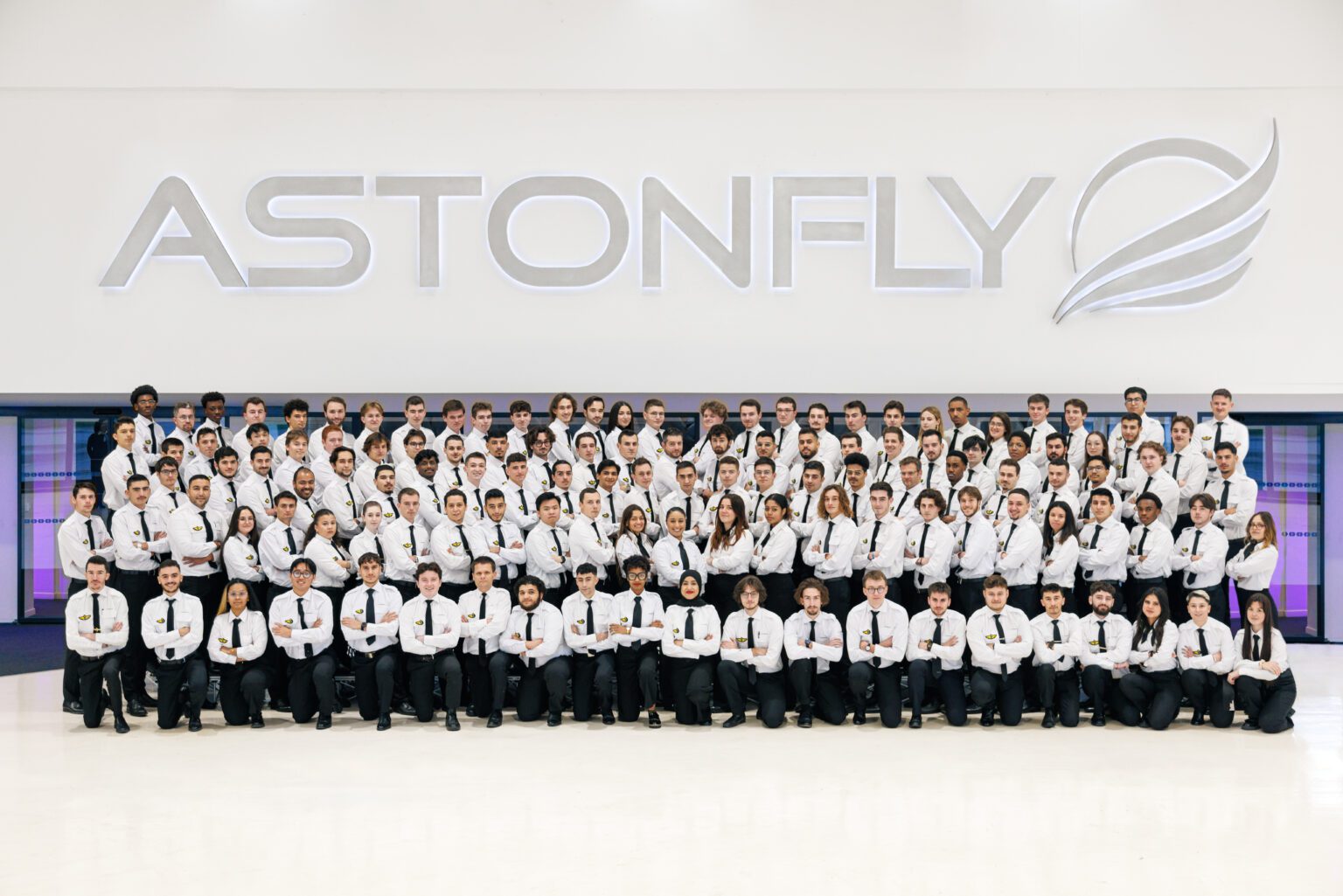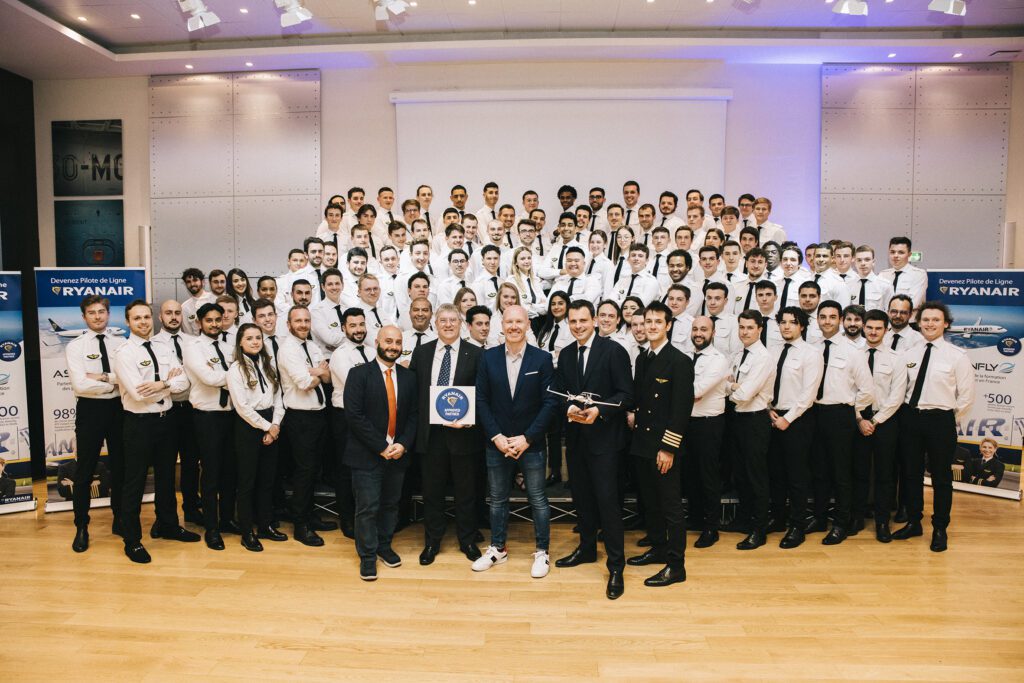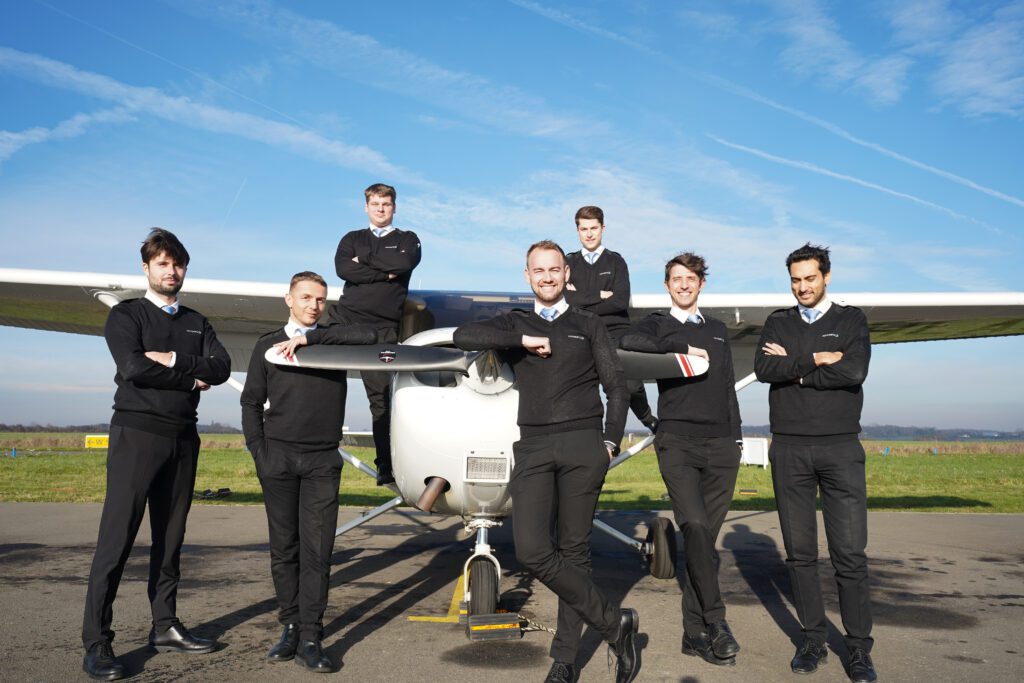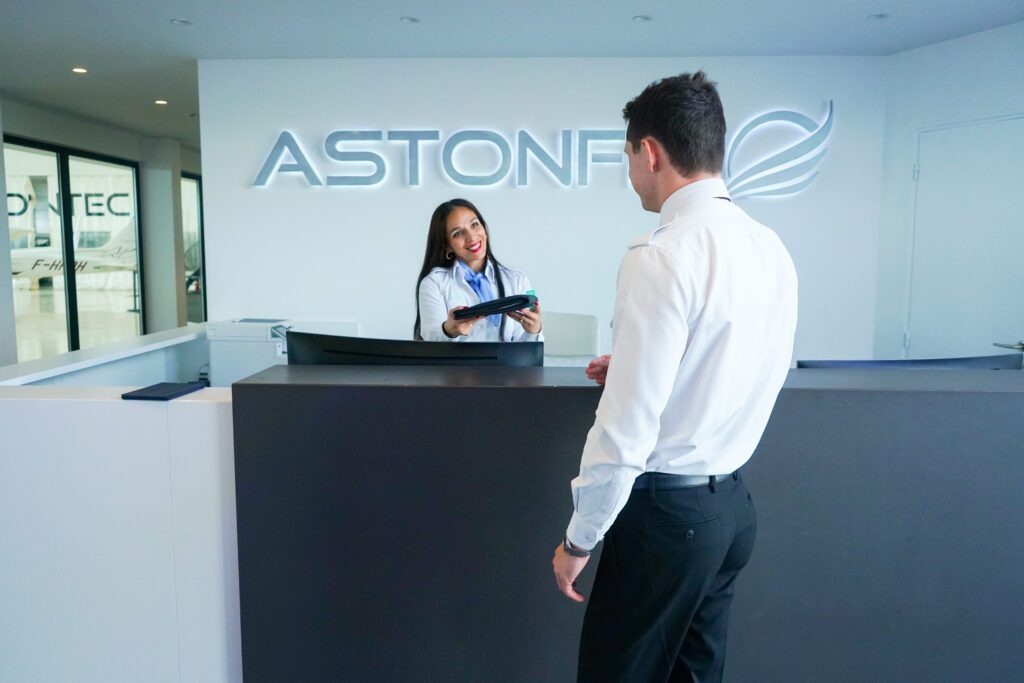Founder Charles Clair's Vision and Ambitions
In a recent interview with Aviation et Pilote, Charles Clair, founder and CEO of Astonfly, shares his bold vision for the future of pilot training in France. In it, he discusses the values that guide Astonfly, his ambitions for the flight school and strategic partnerships, notably with leading airlines such as Ryanair.
Astonfly: Over 20 years of success training professional pilots
Since its creation in 2003, Astonfly has continuously grown to become a key reference in airline pilot training. Charles Clair, founder and CEO of Astonfly, reflects on the history and evolution of the school, which trains hundreds of students each year, with a focus on innovation and excellence.


From Promising Beginnings to International Expansion
“I founded Astonfly in 2003 under the name Air et Compagnie, initially to train private pilots (PPL). It wasn’t until 2009 that we launched the first professional training programs,” explains Charles Clair. Since then, Astonfly has become a major player, with every intake fully booked and its reputation continually growing. “Today, we welcome around 250 students for practical and theoretical training, and we have to turn away applicants due to a lack of available spots.”
With a fleet of 25 aircraft and 5 simulators, Astonfly has reached its maximum capacity. However, Charles Clair announced an expansion project for 2025, aiming to increase the school’s capacity by 10 to 15%, while continuing its international development. “Our partnership with Ryanair is a key step in this expansion, and we are considering opening new centers across Europe and worldwide.”

"Our partnership with Ryanair is a key step in this expansion, and we are planning to open new centers in Europe and around the world."
Charles Clair, CEO & Founder of Astonfly Tweet

A Strategic Partnership with Ryanair
The partnership with Ryanair marks a significant milestone for Astonfly. Through the Ryanair Future Flyer Academy, selected students receive a job offer even before starting their training.
“This gives a real boost to the school. Not only do the students have the guarantee of a job upon graduation, but they also don’t have to pay for their Boeing 737 type rating, which is covered by Ryanair,” explains Charles Clair.
Excellence in Training, Focused on English and Technology
At Astonfly, the focus is on English, the exclusive language for courses and briefings. “We already eliminate a large portion of potential candidates due to the language barrier. Our students must be able to work in English, which is a non-negotiable requirement for joining airlines like Ryanair.”
The school has also adapted to the technological advancements in aviation. “The modernization of aircraft requires new skills from pilots. Nowadays, pilots are more system managers than simple ‘operators’ of controls. In the future, full automation, possibly including single-pilot operations, will become a reality,” predicts Charles Clair.


A Human and Pragmatic Approach to Instructors
The management of instructors is also a key aspect of Astonfly’s success. In response to the scarcity of qualified instructors in Europe, Astonfly has implemented an attractive salary policy and an innovative “transparency charter.” “We allow our instructors to attend airline selection processes during their working days, helping them plan for their departure. This enables us to maintain a trusting relationship with them, even after they leave,” explains Charles Clair.
A Future-Oriented Vision
In addition to training pilots for Ryanair, Astonfly plans to soon establish partnerships with other airlines. “The demand for pilots is skyrocketing, especially in Europe, where nearly 8,000 new pilots will be needed annually over the next 20 years,” states Charles Clair.
Through a strategy of continuous innovation, rigorous training, and strong partnerships, Astonfly is positioning itself as a key player in professional pilot training both in France and internationally. With its unique approach, the school is preparing tomorrow’s pilots for a future where technology will play an increasingly central role in aviation.
To read the full article, visit: Aviation et Pilote – Astonfly et Ryanair.






